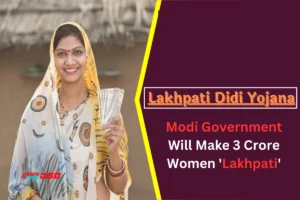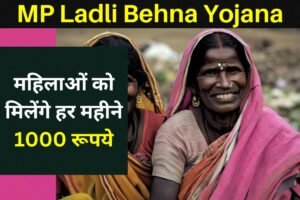On 17 September 2023, Prime Minister Narendra Modi launches the PM Vishwakarma Yojana on his 73rd birthday. He inaugurated this scheme at the India International Convention and Expo Centre in Dwarka, called the Yashobhoomi Convention Center. The PM Vishwakarma Yojana provides several benefits like cash support to people.
Many people look for registration and online application ways to apply under this scheme and avail of these benefits. This article covers the PM Vishwakarma Yojana 2024, eligibility criteria, features, benefits, objectives, registration, online application, etc.
What is PM Vishwakarma Yojana?
As PM Modi states, “Traditionally, crores of ‘Vishwakarmas’ create something by working hard with their hands, tools and equipment. They are the builders of this country – blacksmiths, goldsmiths, potters, carpenters, sculptors, artisans, masons etc.
The government brings various incentive schemes for the first time to support the hard work of all these Vishwakarmas – provisions for training, technology, credit and market support. PM Vishwakarma Kaushal Samman i.e., PM Vishwakarma will bring a sea change in the lives of crores of Vishwakarmas.”
| Goverment Scheme | PM Vishwakarma Yojana |
| Beneficiary | Citizens of India |
| Benefits | Rs 500 Per Day During Training Rs 15000 for Toolkit Loan up to Rs 2 lakh to start Employment |
| Official Website | https://pmvishwakarma.gov.in/ |
PM Vishwakarma Yojana honours Vishwakarma Jayanti. It provides cash support and training to small employees and skilled craftspeople. The estimated cost of this PM scheme is 15,000 crore rupees.
It benefits traditional trades like washermen, hairdressers, goldsmiths, bricklayers, metalworkers with 15,000 crore rupees. The scheme aims to aid struggling craftsmen through liquidity and training.
Highlights of PM Vishwakarma Yojana
- Shows the government’s commitment to improving citizens’ lives and economic conduct through efficient schemes.
- Benefits small businesses by implementing timelines and fund allocation of 13,000-15,000 crores.
- Significant resource allocation like PM Kisan Samman Nidhi Yojana, Jal Jeevan Mission, Ayushman Bharat Yojana, Livestock Scheme.
Objectives and Approaches
Objectives:
- Promote training and skill development opportunities.
- Encourage modern technology adoption.
- Provide collateral-free credit assistance.
- Promote online commerce.
- Create an environment for market linkages and promotional events for brands.
Approach:
- Provides art and craft creators with a step-by-step guide.
- Seeks to preserve perpetuated skills and cultural traditions.
- Aims to bring participants into the economic system.
- Rolled out in both urban and rural areas, with a phased approach to district saturation.
- Enables participation of women and disadvantaged groups for greater impact.
- Promotes awareness of health, pension and insurance schemes.
Key Features
- Covers 18 traditional trades in rural and remote areas like carpentry, boat-making, blacksmithing etc.
- Provides PM Vishwakarma certificate and ID card. Eligible for collateral-free credit up to ₹1 lakh first time and ₹2 lakh second time at 5% interest.
- Offers skill development training with ₹500 stipend and ₹1,500 for modern tool purchases through ₹13,000-15,000 crore budget over 5 years (2023-2028).
- Aims to integrate artisans into domestic and global value chains to enhance market access and growth opportunities.
- Artisans can register at common service centres with funding from central and state governments.
How to Apply Online for PM Vishwakarma Yojana 2024?
- Visit the official website https://pmvishwakarma.gov.in/
- Click on the Registration link and register with your details.
- Proceed to the application form after registering.
- Fill in your name, skill set, Aadhaar number and other required information.
- Complete the application form, upload documents and submit finally.
Required Documents
- Aadhaar Card
- PAN Card
- Bank Passbook
- Educational Certificates
- Active Mobile Number
- Passport Size Photo
Eligibility Criteria
- Must be an artisan or craftsperson in any of the 18 identified trades.
- Should be above 18 years old. No family member should be a government employee.
- Scheme benefits are available to only one family member.
Benefits of PM Vishwakarma Yojana 2023
Artisans registered under the scheme can avail:
- Access to loans up to ₹1 lakh and ₹2 lakh at 5% interest in two phases.
- Skill enhancement through comprehensive training.
- ₹500 daily stipend during the training period.
- ₹15,000 assistance to purchase advanced tools and equipment.
- Prestigious PM Vishwakarma Certificate and ID card.
Checking PM Vishwakarma Yojana Application Status
Curious about your application status? Follow these steps:
- Visit the Official Website.
- Click on the Vishwakarma Shram Samman Yojana option.
- Fill out your application number.
- Click to check the status of your application.
PM Vishwakarma Yojana Eligible Trades
Under this scheme, farmers and artisans working in 18 sectors are eligible who can avail of the benefits of Pradhan Mantri Vishwakarma Yojana, the list of which is as follows:-
| SNo. | Trade | Description |
|---|---|---|
| 1. | Carpenter (Suthar/Badhai) | Self-employed artisans and craftspeople who work with their hands and tools to make/assemble wooden products or alter/repair wooden fixtures, mostly engaged in traditional/unorganised sector. |
| 2. | Boat Maker | Self-employed artisans and craftspeople who work with their hands and tools to make/assemble wooden products or alter/repair wooden fixtures, mostly engaged in traditional/unorganised sectors. |
| 3. | Armourer | Self-employed artisans and craftspeople who manufacture, repair or service various types of arms like swords, shields, knives, helmets, etc. using hands and traditional tools employed in the unorganized sector. |
| 4. | Blacksmith (Lohar) | Self-employed artisans and craftspeople, including blacksmiths, coppersmiths and bronzesmiths, who work with their hands and tools to forge metals like iron, copper, brass or bronze to get the required shape and size by heating, bending, hammering, etc. to create products in the unorganized sector. |
| 5. | Hammer and Tool Kit Maker | Self-employed artisans and craftspeople who work with their hands and tools to forge metals like iron to get the required shape and size by heating, bending, hammering, etc. to create hammer and tools in the unorganized sector. |
| 6. | Locksmith | Self-employed artisans and craftspeople who work with their hands and tools to forge metals like iron to get the required shape and size by heating, bending, hammering, etc. to create hammers and tools in the unorganized sector. |
| 7. | Sculptor (Moortikar, Stone Carver), Stone Breaker | Self-employed artisans and craftspeople also known as Shilpis or Moortikars who work with their hands and tools to carve, break or shape stones into three-dimensional artworks in the unorganized sector. |
| 8. | Goldsmith (Sonar) | Self-employed goldsmiths/sonar/swarnakars, silversmiths are the artisans and craftspeople who work with their hands and tools to create and design intricate jewellery and ornamental pieces with gold and other precious metals in the unorganized sector. |
| 9. | Potter (Kumhaar) | Self-employed artisans and craftspeople who work with their hands and tools to create pottery articles by moulding clay on a wheel and baking them in a kiln using traditional methods in the unorganized sector. |
| 10. | Cobbler (Charmakar)/ Shoesmith/ Footwear Artisan | Self-employed artisans found in small roadside stalls or travelling in streets who use hands and traditional tools like cutter, hammer, needle, threads, etc. to manufacture, repair, restore and modify footwear. |
| 11. | Masons (Rajmistri) | Masons are artisans and craftspeople who work with their hands and tools to perform works such as constructing structure using brick/block, plastering, cement, water proofing work, etc. in the unorganized sector. These artisans are also known as Rajmistri. |
| 12. | Basket/Mat/ Broom Maker/ Coir Weaver | Basket Makers are self-employed artisans and craftspeople who weave pliable materials in order to make different types of baskets in the unorganised sector. Mat Makers/Coir Weavers are self-employed artisans and craftspeople who weave coir and bamboo materials to make items such as Baskets, Mats, etc. Broom Makers are self-employed artisans and craftspeople who process the bristles collected from various grass or plants such as coconut to make brooms by using tools such as wooden handle. scissors, knife, etc. |
| 13. | Doll & Toy Maker (Traditional) | Doll & Toy Makers (Traditional) are self-employed artisans and craftspeople who work with their hands and tools to make Dolls and Toys by using materials such as wool, threads, cotton, wood, etc. |
| 14. | Barber (Naai) | Self-employed artisans and craftspeople who work with their hands using scissors, blades, combs, shaving creams, etc. to provide grooming services to people, primarily hair cutting. shaving, etc. |
| 15. | Garland Maker (Malakaar) | Self-employed artisans who work with their hands to create decorative garlands made of flowers, leaves, or other materials for use at rituals, or cultural or ceremonial occasions. They meticulously arrange and string together these elements, often incorporating different colours and textures, to produce beautiful and fragrant adornments for various cultural, religious, or celebratory purposes. |
| 16. | Washerman (Dhobi) | Self-employed artisans and craftspeople who work with their hands and provide services such as washing and ironing of clothes to people. They primarily use manual washing techniques, local soaps, wooden stick ‘thapi” and coal-based irons in the unorganised sector. |
| 17. | Tailor (Darzi) | Self-employed artisans and craftspeople who work with their hands using sewing machines, scissors, buttons, fabrics, threads, needles, etc. to stitch and alter various dresses/garments in the unorganized sector. |
| 18. | Fishing Net Maker | Self-employed artisans and craftspeople who work with hands in an unorganised sector to craft fishing nets using various materials like ropes, twines, or threads. They employ traditional techniques or modern machinery to weave and knot the nets into specific designs and sizes, ensuring they are strong and durable for catching fish and other aquatic creatures. |
The list of trades may be updated and modified by the National Steering Committee with the approval of the Minister for MSME, Government of India.
Grant of Rs 15000 for Purchase of Equipment
Under the scheme, all eligible persons will be given 5 days of basic training and 15 days or more advanced training after skill verification. There is also a provision to give a daily allowance of Rs 500 for training. There is a facility to provide a grant of Rs 15,000 as an incentive for purchasing training equipment.
So in summary, the PM Vishwakarma Yojana aims to aid the Vishwakarma community in India through skill development and employment opportunities. Interested applicants meeting the eligibility can register online and avail the scheme’s many benefits.
PM Vishwakarma Yojana FAQ
What is PM Vishwakarma Yojana?
PM Vishwakarma Yojana is a government scheme launched to support artisans and craftsmen engaged in traditional trades by providing cash support, training, and modern techniques to enhance their skills and livelihoods.
Who is eligible for PM Vishwakarma Yojana?
To be eligible for PM Vishwakarma Yojana, individuals must be artisans or craftsmen engaged in any of the 18 traditional trades, such as locksmithing, boat making, carpentry, or goldsmithing. Additionally, applicants must be above 18 years of age and not have any family members employed by the government.
What documents are required for the PM Vishwakarma Yojana application?
Applicants need to submit essential documents including an Aadhaar Card, PAN Card, Bank Account Passbook, Educational Qualification Certificate, Active Mobile Number, and Passport Size Photograph.
How can I register for PM Vishwakarma Yojana?
To register for PM Vishwakarma Yojana 2024, visit the official website https://pmvishwakarma.gov.in/, click on the Registration Link, fill in the required details, and submit the application form along with the necessary documents.
What are the benefits of PM Vishwakarma Yojana?
Enrolled artisans and craftsmen can benefit from low-interest loans, skill enhancement training programs, daily stipend support, financial assistance for purchasing tools, and official recognition with the PM Vishwakarma Certificate and Identity Card.
How can I check the status of my PM Vishwakarma Yojana application?
To check the status of your PM Vishwakarma Yojana application, visit the official website, click on the Vishwakarma Shram Samman Yojana option, fill out your application number, and click to check the status.
Is there any Age limit to apply for PM Vishwakarma Yojana?
Yes, applicants must be above 18 years of age to apply for PM Vishwakarma Yojana.
Can more than one member from a family avail of the scheme benefits?
No, the benefits of PM Vishwakarma Yojana are only available to one member per family.
What trades are covered under PM Vishwakarma Yojana?
PM Vishwakarma Yojana covers 18 traditional trades including locksmithing, boat making, carpentry, goldsmithing, and more.
How long is the registration process for PM Vishwakarma Yojana?
The registration process for PM Vishwakarma Yojana is quick and can be completed online within a few minutes, provided all necessary documents are readily available.
What are the key benefits of the PM Vishwakarma Yojana?
Key benefits include collateral-free loans up to Rs 1 lakh and 2 lakh in two phases, stipend during training, funds for tools, official certification and identity cards.
Is there any stipend provided during training programs?
Yes, a daily stipend of Rs 500 is provided to beneficiaries during their skill training under the PM Vishwakarma Yojana.
2. How long is the PM Vishwakarma Yojana implementation timeline?
The implementation timeline for PM Vishwakarma Yojana spans over five years, from 2023 to 2028, with a budget of ₹13,000 to ₹15,000 crore allocated for the scheme.
Can women apply for PM Vishwakarma Yojana?
Yes, PM Vishwakarma Yojana is open to both men and women engaged in traditional trades as artisans or craftsmen.
How are applicants selected for the PM Vishwakarma Yojana?
Eligible applicants have to register on the portal. The selection is based on criteria like skills, experience, eligibility and availability of program slots.
How long does it take to avail benefits after applying?
The processing time after application may vary. Applicants are advised to check their application status online and wait for approval intimation.
Can applicants re-apply if rejected in the first attempt?
Yes, applicants can re-apply after ensuring they meet the eligibility criteria and have all requisite documents. The application may be reconsidered.












